My Manifesto: A Word From TPC On Injustice In America’s Justice System And The PTSD That Follows
Posted by David Adams on February 13th, 2013
As I walked through the halls of the Maryland State Police & Corrections Training Commission in Woodstock, Maryland, while a Corrections Cadet in Class 95-22, I had confidence that I would make an impact on the job with a thorough understanding of the training which had been instituted prior to my rookie class being assigned to “Steel Side” (Baltimore City Detention Center). BCDC at the time, and in many respects, continues to be the worst Pretrial Correction Facility in the state of Maryland. The state had taken over the financially troubled institution which was formerly known as the “Old Baltimore City Jail” several years prior to my assignment. I experienced troubles with the agency long before I even opened a Training Manual at the academy, when a State Police Lieutenant sought to dismiss my hiring. Questions were raised about my suitability for hiring when officials attempted to contact me at my residence, and cited what they referred to as an offensive voice mail recording as grounds for disqualifying my eligibility for employment. The recording simply had rap music in the background, and apparently aroused prejudice by hiring unit employees (white people), who attempted to scrap my assignment. After learning about these activities I contacted my State Senator Ralph Hughes, and expressed concern regarding what appeared in my mind to be obvious discrimination practices within the agency’ hiring process. Hughes wrote the Director of Public Public Safety & Correctional Services, and I received a phone call the very next day to join my class for Orientation and Training at BCDC the following week. The encounter only served to remind me how the slightest appearance of negativity of any kind could hinder a black man from civil service employment opportunities. This mirrors former LAPD Officer Joe Jones’ account he revealed in his manifesto, when he described a similar incident of harassment while a cadet in the LAPD Police Training Academy. Jones describes being told, and encouraged to quit because he didn’t belong there, simply because he was black. I soon forgot about the incident and simply attributed racism to the efforts to disqualify me, but I was completely ignorant to the horrors which would follow many tours of duty that changed my life for ever, and haunts me to this day. I am not certain whether state officials sabotaged my job, and set me up for the horrific journey I was about to embark upon, but looking back on everything I experienced, there is very compelling evidence that this is exactly what may have occurred. After graduation most agencies require cadets to undergo on the job training specifically targeted toward their site specific assignments. We received weapons training, the use of chemical agents like CN & CS (nasty shit), pepper spray, tazer weapons, and other tactic training utilized in quelling mass disturbances within a correctional facility. Other hands on training was obtained through the grit of shakedowns and direct inmate contact that often resulted in the use of force to control violent encounters with agitated prisoners. It was rough, violent, and often times necessary work to maintain the security integrity of the facility. We also received extensive training in the management of aggressive behavior (a must considering we are dealing with murderers, rapist, and some of the very worst kind of people within all of society). Some say these tactics are appropriate solely because criminals are the dregs of society and are in fact deserving of brutal and harsh treatment, but as a Corrections officer my job was only custody, care and control of inmate populations. In many Prison environments inmates have already been punished by the criminal justice system and exist in these institutions to pay their debt to society. A CO is never the judge, jury, and executioner. Our job is to maintain correctional facilities while protecting society by insuring that violent criminals don’t escape and re-enter communities and repeat violent acts. Although the use of force is often authorized to control violent inmates and other disturbances, such violence has it’s limits. Correctional agencies have their own standards of force, but for the most part they are all universal in terms of the extent to which such force can be carried out. Using force on inmates should never exceed what is only necessary to control any violent act or the situation. Once the inmate has been subdued and properly restrained, any use of force should cease. At least that’s what we were trained to do, but the reality is that many situation where Corrections Officials utilize force, the extent of force typically used far exceeds what is allowed by agency’s policy and the law. This is where I drew the line, resulting in myself being characterized as an inmate lover, and effectively becoming a pariah outcast from the blue line brotherhood. Perhaps such a characterization of me was appropriate if you buy into the allegiance to a “Blue Wall Code of Silence”, which seeks to cover up official misconduct by law enforcement personnel who are sworn to uphold the law. I never bought into that bullshit way of thinking simply because each man should be held accountable for his own actions. I think most would agree that they should be required to falsify official reports to save a co-workers ass who lost it, and beat a man into a fucking coma. However, some have the mindset that inmates are criminals and should be treated harshly because of their crimes. That’s for the courts and the law of the land to met out when dealing with criminal behavior in our society. It’s not as simple as that though. What I have experienced is clearly a deliberate abuse of authority predicated on mere pseudo machoism, and some sort of sick adrenalin rush of getting off on brutality and desire to inflict severe bodily harm upon another human being for pleasure. My failure to tow the blue line resulted in continuous harassment, threats, agency discipline, and a documented attempted on my life spearheaded by the very people I worked along side in an extremely volatile environment. I’ll never forget the day I was summoned to IU (Investigations Unit) which is the equivalent to a police agency’ IAD (Internal Affairs Division). I recall thinking while in route, what they were planning to throw at me next. Upon my arrival I was briefed by a Major, that a letter had been intercepted by Corrections Officers from MCIJ (Maryland Correctional Institution In Jessup) detailing a plot on my life by an inmate was serving a sentence at that institution. MCIJ had been monitoring the inmate’s mail because he was a known member of the Black Gorilla Family (Largest Black Prison Gang in the country). The letter originated from an inmate housed at BCDC. The BCDC inmate was awaiting trial for murdering one of my family members, and for brutally stabbing a female relative of mine. The letter he sent to his brother at MCIJ requested my killing, and the silencing of my family members who would testify against him during his criminal trial. The more shocking aspect of the death threat wasn’t his plan to kill me, because he was a violent inmate, and I understood the nature from which such a desire derived. I was more disturbed by the fact his letter contained vital information which could have resulted in the death of me and my family if not for the fact that Correctional Officers did their jobs by sending the intercepted letter to the appropriate authorities, and in effect foiling this death threat attempt. My accurate home address, my vehicle make, model, and registration was included in the letter as tools to aid in appropriately identifying me for this threat. Inmates have limited resources while in custody and since I had few associates on the job I interacted with outside of work, that information could only have been obtained by someone who had access to my personnel records within the facility. The incident raised the bar for me understanding the level of sickness embodied in the minds of these wicked bastards who hold authority within the criminal justice system in Maryland. Some people have berated me for not conforming to the culture within my agency and cite the fact that correctional environments are so dangerous that personnel must stick together, and that violent force is only necessary to instill fear into inmates who out numbered staff at the time, 950 to 1. This perspective has some merit when considering alarming prison population statistics, but the unnecessary beating of inmates often times for no other provocation than he may have simply given a CO a hard time, doesn’t qualify as a sound or proactive tool to overcome personnel safety within correctional institutions. Many of the brutal beatings I observed entailed between 11-15 Correctional officers stomping and brutalizing one single inmate. Additional, I have stood in role-call witnessing Commanding Officers directing Correctional Staff to make certain that any inmate who assaults a staff member, is beat so severely that his injuries require his immediate transport to shock trauma (true story). I have always had concern that such beatings would one day result in the death of an inmate, and that it would be some how justified with the use of established protocol of doctoring false reports on what actually occurred. What many from the public are unaware of, is that it’s common practice for law enforcement officials to “write together”, meaning that they conspire to cook reports to mirror each other, and because they are constables of a jurisdiction the reports are deemed accurate as a standard operation procedure and institutional policy. Also, any person who fails to go along with these practices are generally dealt with swiftly, and effectively as Christopher Dorner was in his departmental hearings. The use of intimidation, alienation, and other measures such as bad job performance reviews and continued harassment becomes the order of the day when personnel find themselves standing on the other side of the blue line. The culture of weeding out non compliant personnel usually results in the person quitting or being unjustly fired from the job, and the actions are typically upheld during Administrative hearings and other Appellate processes. At the end of the day, when I hear about cases similar to the Christopher Dorner incident, I am naturally suspicious at first glance because of my own experience blue line culture. Dorner’s story reeks with foul air on every level. Let me be clear, I would never support the killing of innocent people as a cure for racial disparity or any other injustice, even if it derived from within the ranks of the very people empowered to protect the public, and uphold the law. The problem with Dorner’s case is that his former police agency has a deplorable record on human relations departmentally as well as within the public at large, and can not be met with credibility simply because they allege a crime has occurred. There is no evidence publicly to support that he actually killed anyone. In every instance in which Christopher Dorner was alleged to have committed these murders, reports only indicated that witnesses say that the perpetrator fit Dorner’s description. Cops reported to the media that they found Dorner’s personal identification in a dumpster, showed a video of him discarding something in the trash, and eventually said his drivers license was found inside the cabin once the fire had been extinguished. The scenario they paint for the public is very problematic. First, Dorner who was deemed a psychopathic killer bent on enacting revenge on former fellow LAPD officers, strangely flees to a camping ground area in California, goes out in a blaze of glory during a gun fight like Custard’s last stand, and the public is suppose to accept these official reports as the truth. Secondly, they say five years after he was fired he just simply went nuts and began to come after the people who were responsible for ending his career. I am sorry that I am not intelligent enough to comprehend these official reports, but what I do know is the events that let up to this man’s unraveling as a sane law enforcement officer, and military veteran more than likely originated from constant persecution after having tried to be responsible while doing his job. No one will dispute that Christopher Dorner had other options to heal what ailed him regarding the upheaval he encountered from LAPD, but the impact that stresses have on those of us who have walked the blue line are immeasurable, and the lack of necessary Post Traumatic Stress Disorder treatment as a standard for troubled law enforcement personnel is perhaps the greatest failure to America’s Criminal Justice System. So don’t tell me about so called rogue cops who kill, if you even believe any of that crap, because I know. I have lived it, felt it, and breathed it. Had I not possessed the mental toughness to overcome persecution and injustice from a corrupt agency, I could have been Christopher Dorner. In my mind Christopher Dorner is just another casualty of a shitty, racist, and corrupt system of policing and government double standard of the law. OFFICER DOWN!!!
The People’s Champion
I’m David Adams
A Self proclaimed geek, Sympathizer for the homeless, Social Change Advocate, Crime Blogger, Promoter of Awareness for Missing and Exploited Children, and a mobile technology enthusiast. A recognized Journalist and Human Interest Writer championing the plight of the masses whom are without a voice of their own.
More Posts - Website
Follow Me:




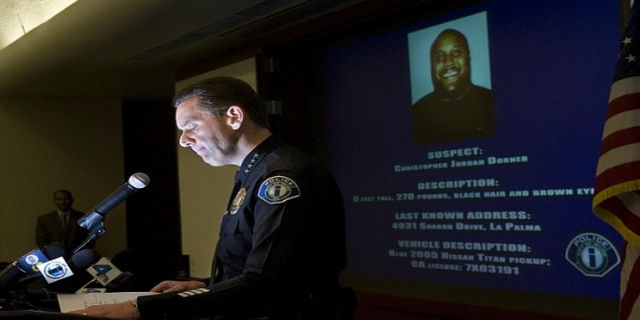
As I walked through the halls of the Maryland State Police & Corrections Training Commission in Woodstock, Maryland, while a Corrections Cadet in Class 95-22, I had confidence that I would make an impact on the job with a thorough understanding of the training which had been instituted prior to my rookie class being assigned to “Steel Side” (Baltimore City Detention Center). BCDC at the time, and in many respects, continues to be the worst Pretrial Correction Facility in the state of Maryland. The state had taken over the financially troubled institution which was formerly known as the “Old Baltimore City Jail” several years prior to my assignment. I experienced troubles with the agency long before I even opened a Training Manual at the academy, when a State Police Lieutenant sought to dismiss my hiring. Questions were raised about my suitability for hiring when officials attempted to contact me at my residence, and cited what they referred to as an offensive voice mail recording as grounds for disqualifying my eligibility for employment. The recording simply had rap music in the background, and apparently aroused prejudice by hiring unit employees (white people), who attempted to scrap my assignment. After learning about these activities I contacted my State Senator Ralph Hughes, and expressed concern regarding what appeared in my mind to be obvious discrimination practices within the agency’ hiring process. Hughes wrote the Director of Public Public Safety & Correctional Services, and I received a phone call the very next day to join my class for Orientation and Training at BCDC the following week. The encounter only served to remind me how the slightest appearance of negativity of any kind could hinder a black man from civil service employment opportunities. This mirrors former LAPD Officer Joe Jones’ account he revealed in his manifesto, when he described a similar incident of harassment while a cadet in the LAPD Police Training Academy. Jones describes being told, and encouraged to quit because he didn’t belong there, simply because he was black. I soon forgot about the incident and simply attributed racism to the efforts to disqualify me, but I was completely ignorant to the horrors which would follow many tours of duty that changed my life for ever, and haunts me to this day. I am not certain whether state officials sabotaged my job, and set me up for the horrific journey I was about to embark upon, but looking back on everything I experienced, there is very compelling evidence that this is exactly what may have occurred. After graduation most agencies require cadets to undergo on the job training specifically targeted toward their site specific assignments. We received weapons training, the use of chemical agents like CN & CS (nasty shit), pepper spray, tazer weapons, and other tactic training utilized in quelling mass disturbances within a correctional facility. Other hands on training was obtained through the grit of shakedowns and direct inmate contact that often resulted in the use of force to control violent encounters with agitated prisoners. It was rough, violent, and often times necessary work to maintain the security integrity of the facility. We also received extensive training in the management of aggressive behavior (a must considering we are dealing with murderers, rapist, and some of the very worst kind of people within all of society). Some say these tactics are appropriate solely because criminals are the dregs of society and are in fact deserving of brutal and harsh treatment, but as a Corrections officer my job was only custody, care and control of inmate populations. In many Prison environments inmates have already been punished by the criminal justice system and exist in these institutions to pay their debt to society. A CO is never the judge, jury, and executioner. Our job is to maintain correctional facilities while protecting society by insuring that violent criminals don’t escape and re-enter communities and repeat violent acts. Although the use of force is often authorized to control violent inmates and other disturbances, such violence has it’s limits. Correctional agencies have their own standards of force, but for the most part they are all universal in terms of the extent to which such force can be carried out. Using force on inmates should never exceed what is only necessary to control any violent act or the situation. Once the inmate has been subdued and properly restrained, any use of force should cease. At least that’s what we were trained to do, but the reality is that many situation where Corrections Officials utilize force, the extent of force typically used far exceeds what is allowed by agency’s policy and the law. This is where I drew the line, resulting in myself being characterized as an inmate lover, and effectively becoming a pariah outcast from the blue line brotherhood. Perhaps such a characterization of me was appropriate if you buy into the allegiance to a “Blue Wall Code of Silence”, which seeks to cover up official misconduct by law enforcement personnel who are sworn to uphold the law. I never bought into that bullshit way of thinking simply because each man should be held accountable for his own actions. I think most would agree that they should be required to falsify official reports to save a co-workers ass who lost it, and beat a man into a fucking coma. However, some have the mindset that inmates are criminals and should be treated harshly because of their crimes. That’s for the courts and the law of the land to met out when dealing with criminal behavior in our society. It’s not as simple as that though. What I have experienced is clearly a deliberate abuse of authority predicated on mere pseudo machoism, and some sort of sick adrenalin rush of getting off on brutality and desire to inflict severe bodily harm upon another human being for pleasure. My failure to tow the blue line resulted in continuous harassment, threats, agency discipline, and a documented attempted on my life spearheaded by the very people I worked along side in an extremely volatile environment. I’ll never forget the day I was summoned to IU (Investigations Unit) which is the equivalent to a police agency’ IAD (Internal Affairs Division). I recall thinking while in route, what they were planning to throw at me next. Upon my arrival I was briefed by a Major, that a letter had been intercepted by Corrections Officers from MCIJ (Maryland Correctional Institution In Jessup) detailing a plot on my life by an inmate was serving a sentence at that institution. MCIJ had been monitoring the inmate’s mail because he was a known member of the Black Gorilla Family (Largest Black Prison Gang in the country). The letter originated from an inmate housed at BCDC. The BCDC inmate was awaiting trial for murdering one of my family members, and for brutally stabbing a female relative of mine. The letter he sent to his brother at MCIJ requested my killing, and the silencing of my family members who would testify against him during his criminal trial. The more shocking aspect of the death threat wasn’t his plan to kill me, because he was a violent inmate, and I understood the nature from which such a desire derived. I was more disturbed by the fact his letter contained vital information which could have resulted in the death of me and my family if not for the fact that Correctional Officers did their jobs by sending the intercepted letter to the appropriate authorities, and in effect foiling this death threat attempt. My accurate home address, my vehicle make, model, and registration was included in the letter as tools to aid in appropriately identifying me for this threat. Inmates have limited resources while in custody and since I had few associates on the job I interacted with outside of work, that information could only have been obtained by someone who had access to my personnel records within the facility. The incident raised the bar for me understanding the level of sickness embodied in the minds of these wicked bastards who hold authority within the criminal justice system in Maryland. Some people have berated me for not conforming to the culture within my agency and cite the fact that correctional environments are so dangerous that personnel must stick together, and that violent force is only necessary to instill fear into inmates who out numbered staff at the time, 950 to 1. This perspective has some merit when considering alarming prison population statistics, but the unnecessary beating of inmates often times for no other provocation than he may have simply given a CO a hard time, doesn’t qualify as a sound or proactive tool to overcome personnel safety within correctional institutions. Many of the brutal beatings I observed entailed between 11-15 Correctional officers stomping and brutalizing one single inmate. Additional, I have stood in role-call witnessing Commanding Officers directing Correctional Staff to make certain that any inmate who assaults a staff member, is beat so severely that his injuries require his immediate transport to shock trauma (true story). I have always had concern that such beatings would one day result in the death of an inmate, and that it would be some how justified with the use of established protocol of doctoring false reports on what actually occurred. What many from the public are unaware of, is that it’s common practice for law enforcement officials to “write together”, meaning that they conspire to cook reports to mirror each other, and because they are constables of a jurisdiction the reports are deemed accurate as a standard operation procedure and institutional policy. Also, any person who fails to go along with these practices are generally dealt with swiftly, and effectively as Christopher Dorner was in his departmental hearings. The use of intimidation, alienation, and other measures such as bad job performance reviews and continued harassment becomes the order of the day when personnel find themselves standing on the other side of the blue line. The culture of weeding out non compliant personnel usually results in the person quitting or being unjustly fired from the job, and the actions are typically upheld during Administrative hearings and other Appellate processes. At the end of the day, when I hear about cases similar to the Christopher Dorner incident, I am naturally suspicious at first glance because of my own experience blue line culture. Dorner’s story reeks with foul air on every level. Let me be clear, I would never support the killing of innocent people as a cure for racial disparity or any other injustice, even if it derived from within the ranks of the very people empowered to protect the public, and uphold the law. The problem with Dorner’s case is that his former police agency has a deplorable record on human relations departmentally as well as within the public at large, and can not be met with credibility simply because they allege a crime has occurred. There is no evidence publicly to support that he actually killed anyone. In every instance in which Christopher Dorner was alleged to have committed these murders, reports only indicated that witnesses say that the perpetrator fit Dorner’s description. Cops reported to the media that they found Dorner’s personal identification in a dumpster, showed a video of him discarding something in the trash, and eventually said his drivers license was found inside the cabin once the fire had been extinguished. The scenario they paint for the public is very problematic. First, Dorner who was deemed a psychopathic killer bent on enacting revenge on former fellow LAPD officers, strangely flees to a camping ground area in California, goes out in a blaze of glory during a gun fight like Custard’s last stand, and the public is suppose to accept these official reports as the truth. Secondly, they say five years after he was fired he just simply went nuts and began to come after the people who were responsible for ending his career. I am sorry that I am not intelligent enough to comprehend these official reports, but what I do know is the events that let up to this man’s unraveling as a sane law enforcement officer, and military veteran more than likely originated from constant persecution after having tried to be responsible while doing his job. No one will dispute that Christopher Dorner had other options to heal what ailed him regarding the upheaval he encountered from LAPD, but the impact that stresses have on those of us who have walked the blue line are immeasurable, and the lack of necessary Post Traumatic Stress Disorder treatment as a standard for troubled law enforcement personnel is perhaps the greatest failure to America’s Criminal Justice System. So don’t tell me about so called rogue cops who kill, if you even believe any of that crap, because I know. I have lived it, felt it, and breathed it. Had I not possessed the mental toughness to overcome persecution and injustice from a corrupt agency, I could have been Christopher Dorner. In my mind Christopher Dorner is just another casualty of a shitty, racist, and corrupt system of policing and government double standard of the law. OFFICER DOWN!!!
The People’s Champion
I’m David Adams
A Self proclaimed geek, Sympathizer for the homeless, Social Change Advocate, Crime Blogger, Promoter of Awareness for Missing and Exploited Children, and a mobile technology enthusiast. A recognized Journalist and Human Interest Writer championing the plight of the masses whom are without a voice of their own.
More Posts - Website
Follow Me:




You can
leave a response, or
trackback from your own site.

 RSS Feed
RSS Feed Twitter
Twitter




 Posted in
Posted in 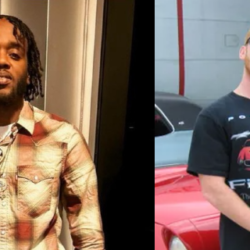
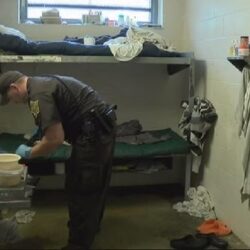
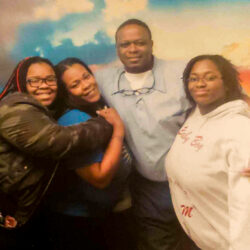
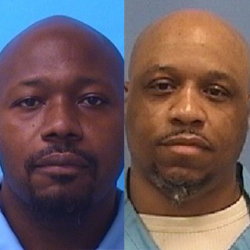
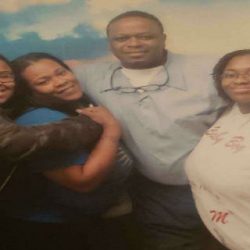

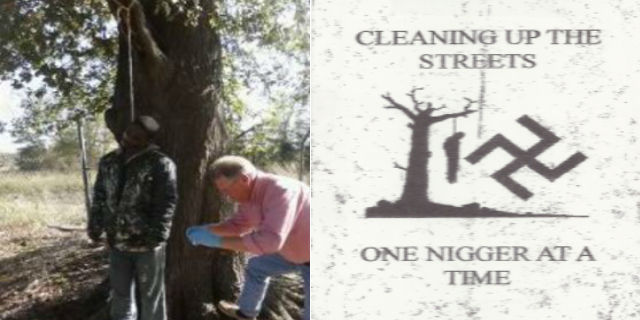
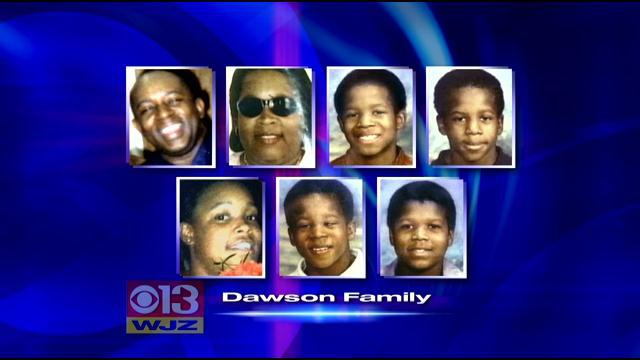
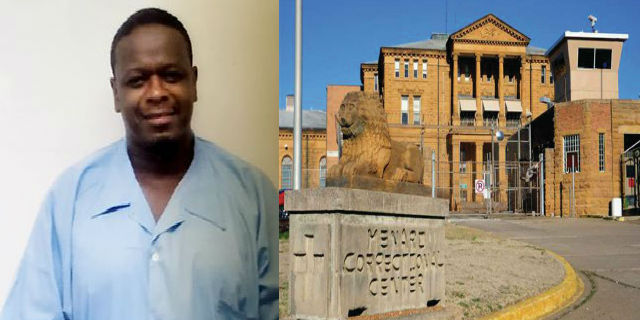
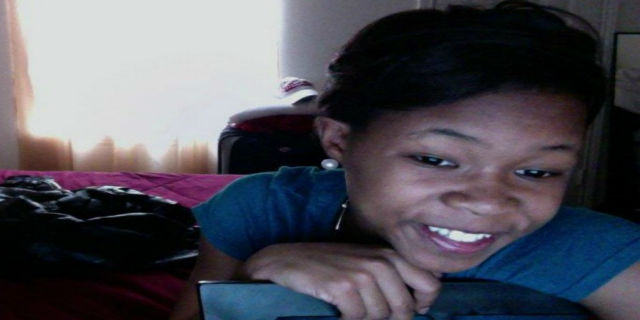



Connie Sade
I found a great…